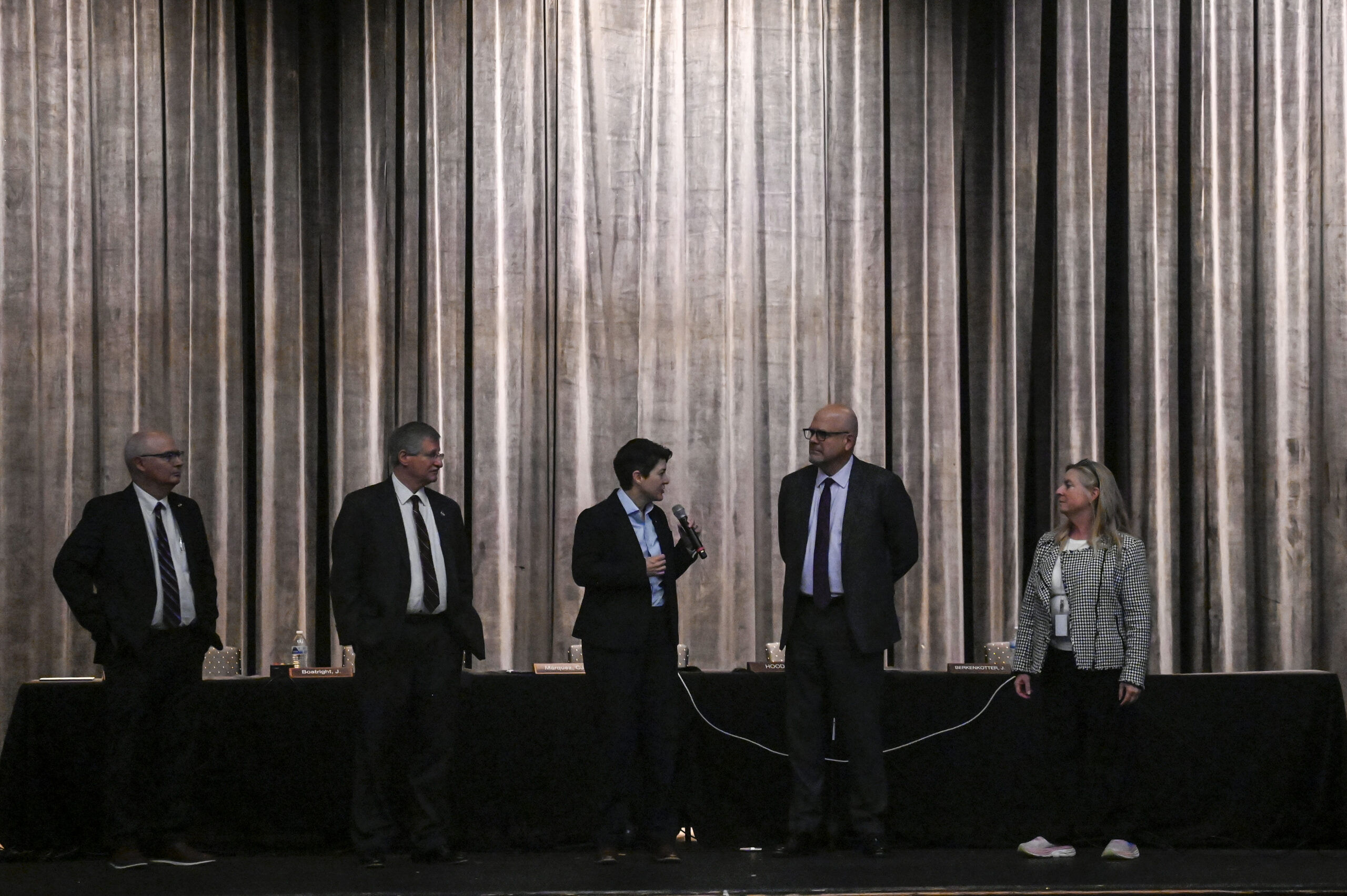miranda v. arizona
-

Colorado justices consider whether Denver police failed to respect suspect’s right to counsel
—
by
Members of the Colorado Supreme Court considered on Thursday whether Denver detectives improperly restarted their interrogation of a murder suspect who had clearly invoked his constitutional right to an attorney. The district attorney’s office characterized the circumstances as “peculiar.” When police initially brought in Dakotah Lulei for questioning, he was not under arrest. After receiving…
-
Denver judge failed to let defendant speak, appeals court finds in overturning 48-year sentence
—
by
A Denver judge did not satisfy her obligation to ensure a defendant knew he could speak on his own behalf at sentencing, Colorado’s second-highest court determined in ordering a new sentencing hearing on Thursday. Jurors convicted Joe Pinheiro of second-degree murder in 2022 for fatally shooting Philip Malinowski five years earlier. The parties disputed whether Pinheiro’s…
-
Appeals court says requirement that parents be ‘present’ during child interrogations does not mean ‘attentive’
—
by
Colorado’s second-highest court ruled on Thursday that the requirement for parents to be present when police interrogate their child in custody means only that the parent must be “physically present,” not “mentally present” as well. Under the landmark U.S. Supreme Court case Miranda v. Arizona, law enforcement is required to inform a suspect of their rights…
-
Colorado justices say child welfare workers not required to give Miranda warning before interrogating parents
—
by
The Colorado Supreme Court ruled on Monday that child welfare workers are not required to give a Miranda warning to parents before interrogating them in custody, even if the interview or the notes will later be shared with prosecutors and used against the parent at trial. Miranda warnings, named after the landmark U.S. Supreme Court…
-
Federal judge finds Miranda violation in interrogation of Denver firearms suspect
—
by
A federal judge concluded on Friday that a Denver police sergeant interrogated a man who was under arrest for a suspected firearms offense while failing to provide a Miranda warning first. U.S. District Court Judge S. Kato Crews acknowledged that defendant Dayvon Vaughns may not have said anything incriminating during the questioning, and his statements…
-
Colorado Supreme Court wary of requiring child welfare workers to give Miranda warnings prior to interrogations
—
by
Members of the Colorado Supreme Court seemed hesitant on Wednesday to endorse the idea that child welfare workers must provide a Miranda warning before interrogating a parent in custody, even if the conversation will later be used in a criminal prosecution. The state’s Court of Appeals previously upheld the murder convictions of two men, both…
-
Colorado Supreme Court finds Aurora police committed no Miranda violation when interrogating suspect
—
by
Aurora police did not need to provide a Miranda warning to a road rage suspect before interrogating him outside his apartment building in an accusatory manner, the Colorado Supreme Court ruled on Monday. Under the U.S. Supreme Court’s landmark decision in Miranda v. Arizona, law enforcement must inform suspects of their constitutional rights to remain silent…
-
Colorado justices reverse murder conviction for police interrogation lacking Miranda warning
—
by
A woman convicted of murdering her husband in a Moffat County motel room will receive a new trial after the Colorado Supreme Court concluded on Monday that police failed to provide a Miranda warning before interrogating her. Rachel Ann Niemeyer and Michael Adam Freese were intoxicated and handling a rifle when the gun went off and…
-
Colorado justices wrestle with whether woman’s 2.5 hours under police supervision was ‘custody’
—
by
Members of the Colorado Supreme Court wrestled last month with a question that previously divided the state’s second-highest court: Did Craig law enforcement effectively place a heavily intoxicated woman in custody and interrogate her for the murder of her husband without providing the necessary Miranda warning? The answer could implicate the breadth of protection afforded…
-
Colorado justices skeptical Aurora officer committed Miranda violation on road rage suspect
—
by
Members of the Colorado Supreme Court appeared skeptical last week that a road rage suspect was “in custody” at the time an Aurora police officer interrogated him, as the state’s second-highest court believed was the case. Under the U.S. Supreme Court’s landmark decision in Miranda v. Arizona, police must inform a suspect of their rights to…


